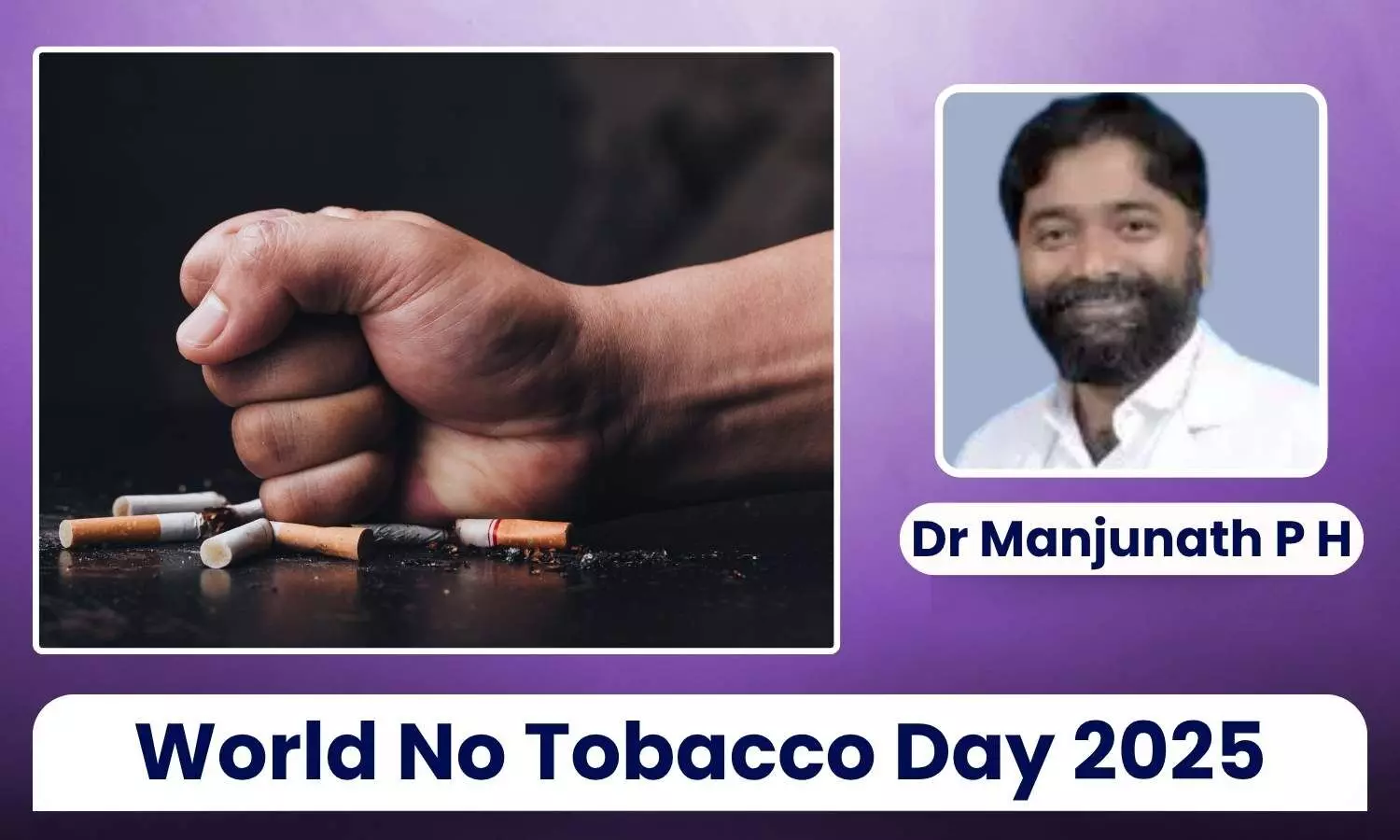Not Just Lungs: 5 Body Parts You Didn't Know Tobacco Destroys - Dr Manjunath P H

People typically associate tobacco-related disorders with lung cancer or chronic cough. We've all heard this association our entire lives. But what if we told you that smoke quietly harms organs and systems other than your lungs?
Tobacco, whether smoked, eaten, or inhaled, causes a chain reaction in the body. It's not just the smoke; it's the chemicals, poisons, and the long-term effects they have. Many of these effects appear after significant damage has been done.
Let's look at five crucial locations outside the lungs where tobacco has a concealed yet damaging impact.
1. Kidneys
You rarely notice your kidneys acting up until they start to fail. Tobacco use elevates blood pressure, breaks blood vessels, and increases the chance of protein leaks in the urine, all of which indicate kidney strain.
Smokers are substantially more likely than non-smokers to develop chronic kidney disease, especially if they have other risk factors such as diabetes or high blood pressure.
Even worse, smoking reduces the effectiveness of renal disease treatments and promotes the decrease of kidney function.
2. Fertility
Whether you're attempting to conceive or simply preparing for the future, tobacco discreetly lowers your odds. Smoking in men can diminish sperm count, motility, and DNA damage. In women, it can cause egg loss, early menopause, and difficulties with embryo implantation.
It doesn't stop there; tobacco use during pregnancy raises the chance of miscarriage, stillbirth, and birth abnormalities. Even passive smoking can harm reproductive health.
3. Mental Health
Many smokers claim they light up to "feel better" or to soothe their tensions. However, tobacco may be doing the exact opposite. Nicotine produces a fast dopamine surge, resulting in a transient feeling of pleasure or serenity.
However, this is followed by a crash, which results in irritation, depression, and dependence. Over time, this rollercoaster can exacerbate anxiety and despair.
Quitting smoking, while difficult, has been shown in studies to increase brain clarity, mood stability, and sleep quality. In fact, quitting smoke may benefit your mental health more than your daily coffee.
4. Immune System
The immune system is the body's first line of defence. However, smoke blunts that response. It impairs the activity of white blood cells, making it difficult to fight infections.
That is why smokers frequently take longer to recover from common illnesses such as the flu or pneumonia, and they are more prone to recurring infections.
Even wounds take longer to heal because tobacco reduces blood flow and hinders tissue recovery. This is especially dangerous after surgery or for persons with diabetes, where a small wound can turn into a major problem.
5. Bones
We don't worry about our bones until they shatter. Tobacco, however, quietly weakens them. It inhibits calcium absorption, reduces estrogen levels in women, and promotes bone loss.
Smokers are at a significantly increased risk of developing osteoporosis, particularly postmenopausal women and older adults.
Even young folks aren't immune. Tobacco undermines the peak bone mass you achieve in your teens and twenties, your body's "bone savings account," increasing your fracture risk decades later.
Takeaway: It's more than just the lungs
Tobacco does not act in isolation; it affects every cell, tissue, and system. And, the consequences aren't necessarily dramatic or immediate. It frequently sneaks in quietly, only to manifest years later as a fertility issue, a stress fracture, or an inexplicable infection.
What is the good news? The body has an astonishing ability to mend itself if given the opportunity. Healing occurs as soon as you stop using tobacco. Your risk of heart disease, kidney failure, infertility, and even cancer decreases with time.
If you smoke tobacco, even casually, and see changes in your health, do not ignore them. Visit an expert for a comprehensive examination. When it comes to tobacco's harmful effects, what you can't see can affect you. However, with the correct help, it is never too late to undo the damage.


